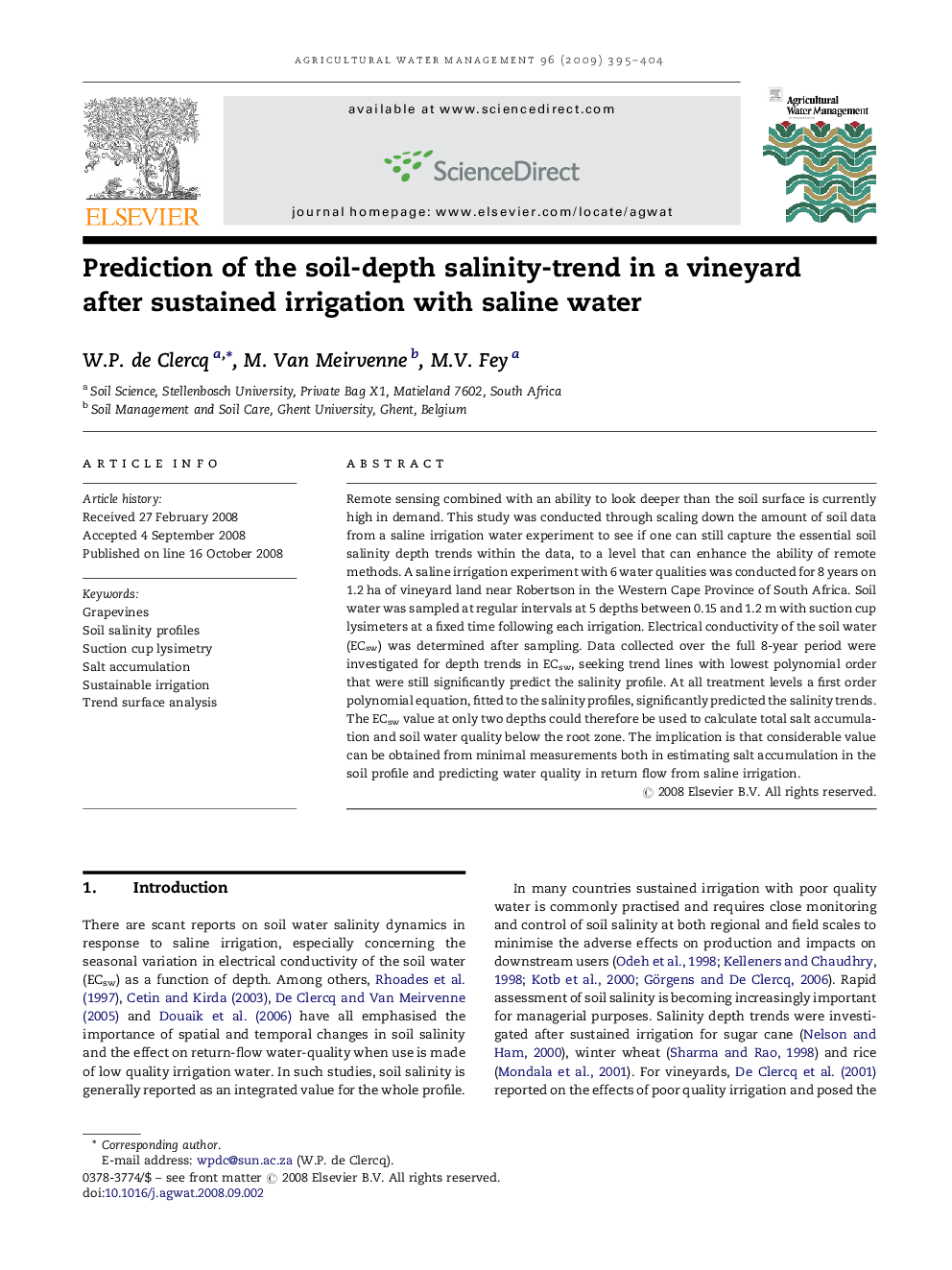| Article ID | Journal | Published Year | Pages | File Type |
|---|---|---|---|---|
| 4479856 | Agricultural Water Management | 2009 | 10 Pages |
Remote sensing combined with an ability to look deeper than the soil surface is currently high in demand. This study was conducted through scaling down the amount of soil data from a saline irrigation water experiment to see if one can still capture the essential soil salinity depth trends within the data, to a level that can enhance the ability of remote methods. A saline irrigation experiment with 6 water qualities was conducted for 8 years on 1.2 ha of vineyard land near Robertson in the Western Cape Province of South Africa. Soil water was sampled at regular intervals at 5 depths between 0.15 and 1.2 m with suction cup lysimeters at a fixed time following each irrigation. Electrical conductivity of the soil water (ECsw) was determined after sampling. Data collected over the full 8-year period were investigated for depth trends in ECsw, seeking trend lines with lowest polynomial order that were still significantly predict the salinity profile. At all treatment levels a first order polynomial equation, fitted to the salinity profiles, significantly predicted the salinity trends. The ECsw value at only two depths could therefore be used to calculate total salt accumulation and soil water quality below the root zone. The implication is that considerable value can be obtained from minimal measurements both in estimating salt accumulation in the soil profile and predicting water quality in return flow from saline irrigation.
